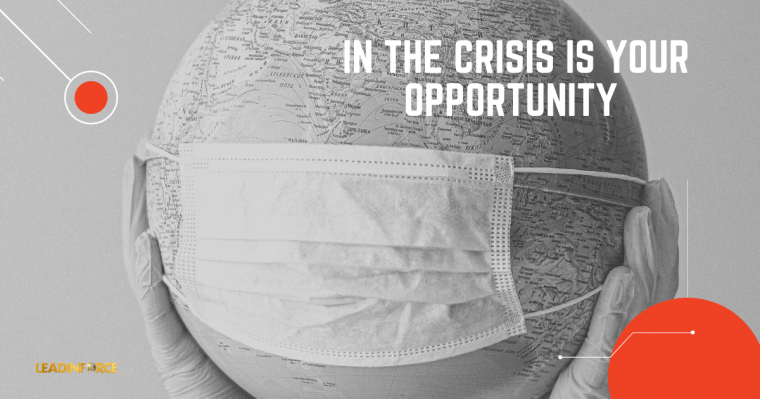Due to the global crisis caused by COVID-19, that many believe is unprecedented, numerous changes have been observed. All those changes in such a short period of time, that for many of us, especially the new generations, have not been seen before

Many of these changes have been established at official levels; others of these changes have been decisions taken individually. What changes did you have to accept? What changes were your own decisions?
Change is synonymous with replacement or substitution. Furthermore, having a change refers to leaving one thing or situation to take another. As leaders, change in times of crisis can have different meanings. For some change is a temporary problem, for others, it’s an opportunity.
Global reports agree that the world has had to face significant changes due to COVID-19. Although each country has a different approach, there are changes that are occurring worldwide:
The Countries and Territories that have reported cases of COVID-19, in their majority, decreed a quarantine, which intensified working from home and homeschooling.
The number of commercial flights has had a significant decrease worldwide.
In the main cities around the world, vehicular traffic has stopped due to restrictions on movement and social contact.
Pollution levels dropped significantly around the world.
Specialists believe that more significant changes will be seen in the following years, such as changes in the way we work, in education, international relations, and of course in our health care.
In adverse situations, the leader with the proper perspective adapts to the circumstances and makes them an opportunity for themselves, for those around them, and for the organizations to which they belong as well. As leaders, having the right outlook is an advantage in any crisis.
How can leaders turn unexpected change into opportunity?
Conforming is certainly dangerous in times of crisis. It is more productive and effective to adapt, using our creativity to build solutions according to each situation.
The response to change reveals the character and values of each leader. Your attitude, values, and ability to maintain a positive environment are what make the difference.
In moments of crisis, leaders are present, they have a voice of hope, and they know what the next step is.
Leaders must have a plan B for times of crisis. However, most of the time unexpected situations require short-term strategies, with flexible and different alternatives, that allow creating momentum and dynamics of progress and productivity.
Crises are not regularly easy to bear, but we have the capacity to turn them into opportunities. Former American President John F. Kennedy emphasized this many years ago: “When written in Chinese, the word ‘crisis’ is composed of two characters. One represents danger and the other represents opportunity.”
If you want to elevate your leadership to the next level of effectiveness, especially in times of crisis, we can help you create a plan that every leader must have. Contact us we are here to support you.
Question: How can you use unexpected change to create opportunities?
